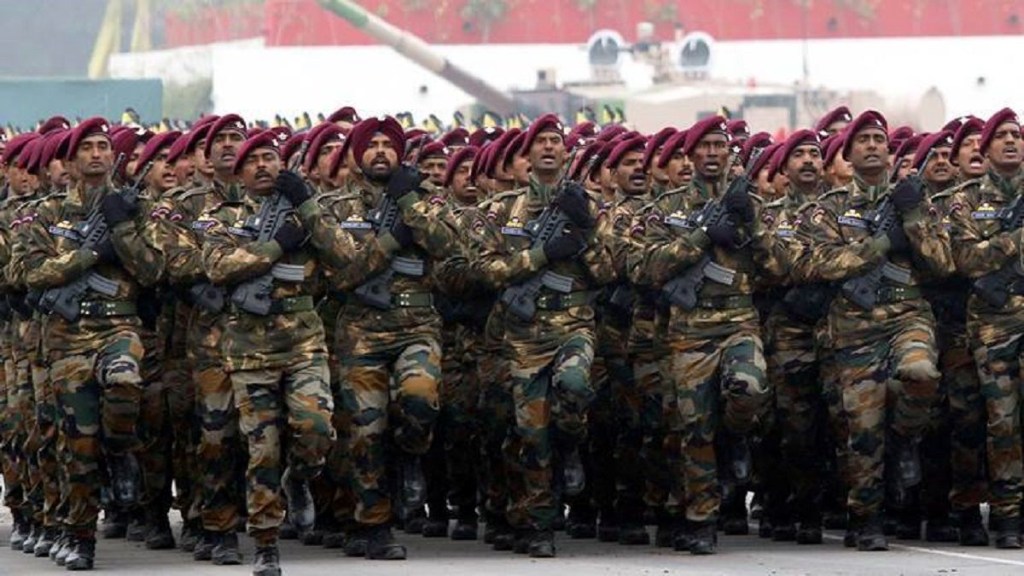By Lt Col Manoj K Channan, Veteran
National security stands as the bedrock of a nation’s stability and prosperity. In an ever-evolving global landscape, the role of military leadership is indispensable in safeguarding a nation’s interests and sovereignty. This article delves into the multifaceted responsibilities and challenges military leaders face as they navigate the complex terrain of national security. From the delicate balance of admiration and critique to the critical importance of promoting independent thought, this discussion underscores the indispensable role of military leadership in shaping the future of security.
Balancing Admiration and Critique
The accomplishments of a government, particularly in domains like foreign policy, deserve recognition. However, the stakes are immensely high in the realm of national security. Acknowledging these achievements should not be overlooked because of the need to address areas of concern. Constructive criticism catalyzes improvement, fostering an environment where decision-making processes are refined and strategies are bolstered to meet the challenges of an ever-changing world.
The Dilemma of Military Advisors
The advisory role of military personnel in political spheres can greatly influence the course of a nation’s security strategies. Inadequate or ill-informed advice, as labelled here as I-5 (Intellectually Impoverished Ill-Informed and Ignorant Individuals), can have far-reaching consequences. The impact of misguided counsel can ripple through the intricate fabric of national security, affecting strategic objectives and potentially compromising the nation’s safety. The responsibility of military advisors extends beyond immediate political gains to the nation’s broader interests.
The Pitfalls of Impulsive Decision-Making
Rash and impulsive decisions regarding military matters can have dire consequences. Major decisions demand rigorous analysis and consultation with experts from various domains. Prioritizing short-term political gains over long-term strategic efficacy risks destabilizing the nation’s security landscape. A delicate equilibrium must be maintained, ensuring that decisions are politically expedient and strategically sound, underpinning the nation’s stability and security.
Promoting Independent Thinking
Institutions like Think Tanks are pivotal in fostering a culture of diverse viewpoints and critical analysis. Military leaders must embrace this ethos of independent thinking. It is incumbent upon them to provide honest, unbiased, and evidence-based advice to political decision-makers. The most effective strategies can be formulated only through well-rounded, multidimensional perspectives to address the complexities of national security challenges.
The Power of Unpleasant Truths
In a world awash with information, the temptation to prioritize appealing narratives over uncomfortable truths is ever-present. However, the essence of true leadership lies in the willingness to embrace and address unpleasant realities. Failure to acknowledge such truths in national security can lead to catastrophic consequences. Historical examples remind the perils of sidelining vital information in favour of politically palatable narratives.
Leadership’s Role in Future Wars
As the global landscape continues to evolve, the role of military leadership becomes even more critical in shaping strategies for future conflicts. Beyond reactive measures, leaders must proactively anticipate potential threats and challenges. By considering long-term security interests over transient political gains, military leadership can ensure that a nation’s security architecture is robust and adaptive.
Conclusion
National security is not a singular endeavour; it requires a symphony of efforts, with military leadership playing a key soloist’s role. The intricate balance between admiration for government achievements and constructive critique forms the basis for improvement. Military advisors, armed with comprehensive knowledge and expertise, wield immense influence and must wield it responsibly. Impulsive decisions must give way to well-considered strategies that prioritize the nation’s stability over immediate political expediency. Institutions promoting independent thought are guardians of critical thinking, fostering a culture where diverse viewpoints can flourish. Embracing unpleasant truths is essential, as sidestepping them jeopardizes the very foundation of national security.
The future demands a visionary approach from military leadership that transcends immediate challenges and securely positions the nation in an ever-changing world. By embracing these principles, military leaders can navigate the complexities of the modern geopolitical landscape, ensuring the safety and prosperity of the nation they serve.
The author is an Indian Army Veteran.
Disclaimer: Views expressed are personal and do not reflect the official position or policy of Financial Express Online. Reproducing this content without permission is prohibited.

